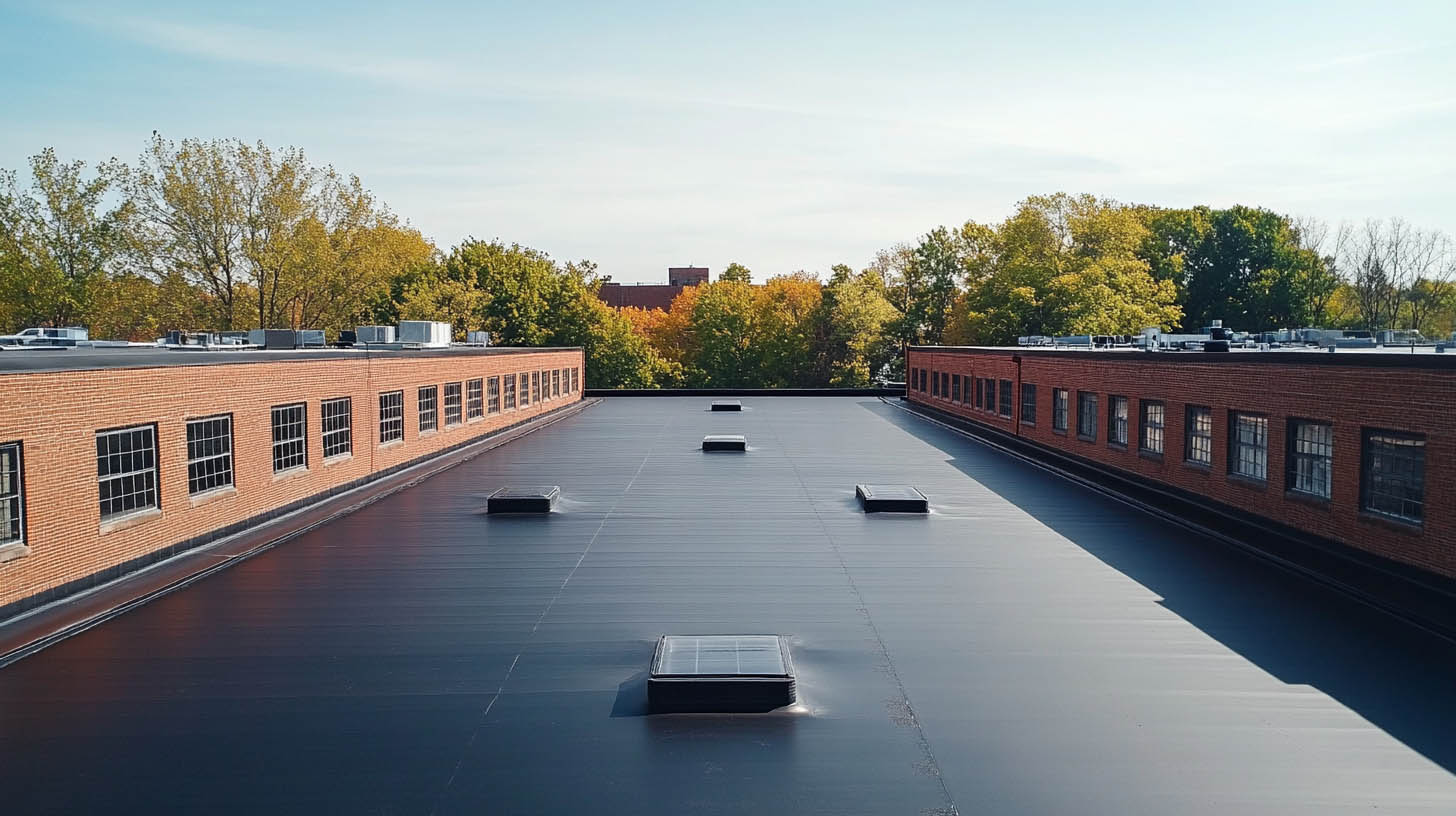
For homeowners seeking a long-lasting, low-maintenance roofing option, rubber roofing has become a preferred choice. Made from durable, recycled materials, rubber roofs provide exceptional weather resistance, environmental benefits, and a lifespan of up to 50 years. Rainstoppers Roofing in Charleston, WV, recommends rubber roofing for clients looking for sustainability and resilience in unpredictable climates.
Benefits of Rubber Roofing
1. Eco-Friendly and Sustainable
Rubber roofing materials are derived from recycled tires, sawdust, and slate dust, offering an environmentally friendly alternative to traditional roofing. By repurposing these materials, rubber roofs reduce landfill waste, making them an excellent choice for eco-conscious homeowners.
2. Superior Weather Resistance
Rubber roofs perform exceptionally well in harsh weather conditions, providing a nearly waterproof surface that shields against rain, snow, and UV rays. This resilience makes rubber roofing a top choice in regions with fluctuating weather, as it prevents leaks, mold, and mildew.
3. Long-Lasting Durability
Compared to asphalt shingles, which typically last 15-20 years, rubber roofing offers a much longer lifespan, with most installations lasting 40 to 50 years. Treated with UV and ozone-resistant coatings, rubber roofing ages slowly, maintaining its integrity and appearance over decades.
4. Energy Efficiency and Cost Savings
Rubber roofing contributes to energy savings by providing natural insulation, reducing heating and cooling costs. Although the initial cost may be higher than traditional materials, the long-term savings in maintenance and energy bills make rubber roofing a cost-effective investment.
Comparing Rubber Roofing to Traditional Materials
Rubber roofs surpass materials like asphalt and metal in both longevity and ease of installation. Large, seamless sheets reduce potential leak points and simplify repairs, lowering long-term maintenance costs. In contrast, asphalt shingles may require frequent replacement and repair due to weathering.
Conclusion
Rubber roofing is a durable, sustainable, and cost-effective option for homeowners seeking a resilient roofing solution. With its long lifespan and low maintenance needs, Rainstoppers Roofing recommends rubber roofing as an excellent investment for properties in Charleston, WV, and beyond.
FAQs
- How long does rubber roofing last?
- Rubber roofs can last up to 50 years, outlasting many traditional roofing materials.
- Is rubber roofing suitable for areas with heavy rain?
- Yes, rubber roofing is highly water-resistant, providing excellent protection against heavy rainfall and leaks.
- Are rubber roofs energy-efficient?
- Yes, rubber roofs offer natural insulation, helping to reduce energy costs for heating and cooling.
- How does rubber roofing compare to asphalt shingles?
- Rubber roofing lasts longer and requires less maintenance, though it has a higher upfront cost than asphalt shingles.
- Can rubber roofing be installed on residential properties?
- Yes, rubber roofing is suitable for both residential and commercial properties, providing a sustainable and durable option.
To learn more about how to ensure a quality roof installation, click here.
